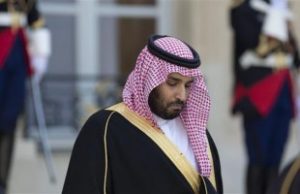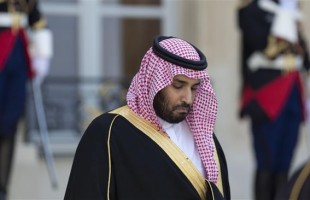 Mired in a protracted conflict in Yemen and threatened by the rise of the Shia crescent in Iraq, Syria and Lebanon with fears of an uprising of its own Shia population or those in neighboring Bahrain, Saudi Arabia has taken a series of aggressive foreign policy decisions that only reflect the domestic turmoil it is undergoing with the recent political shake-up.
Mired in a protracted conflict in Yemen and threatened by the rise of the Shia crescent in Iraq, Syria and Lebanon with fears of an uprising of its own Shia population or those in neighboring Bahrain, Saudi Arabia has taken a series of aggressive foreign policy decisions that only reflect the domestic turmoil it is undergoing with the recent political shake-up.
Most analysts ascribe Saudi Arabia’s miscalculated actions in the region to its stumbling in the wake of the US disengagement from the region.
Alarmed by the rise of its archrival Iran, Saudi Arabia has taken moves that push analysts to deem it as an irrational actor in the region.
“We’re seeing a series of miscalculations … We tend to think that Saudi Arabia has become an irrational actor in the Middle East,” Philippe Dauba-Pantanacce, global geopolitical strategist at Standard Chartered bank told CNBC. “Every single foreign venture they (Saudi Arabia) try has reached the opposite result that they wanted. In Yemen, in Qatar, and now in Lebanon,” he said.
The last blow dealt to Saudi Arabia’s foreign policy is the suspension by Lebanon’s Prime Minister Saad Hariri of his previous Saudi instigated resignation, apparently in order to open “a new gateway for responsible dialogue”. Whether this came with Saudi approval is not yet known.
Hariri’s backtracking on his resignation, announced Wednesday, comes as speculations have claimed that he was forced to resign while on an unexpected visit to Riyadh, coinciding with the massive purge ordered by the all-powerful Prince Bin Salman against Princes and multi-billionaires on charges of corruption.
Analysts see that Saudi Arabia is losing track as it sees that its military campaign in Yemen has actually worsened an already catastrophic humanitarian situation while prompting greater Iranian involvement there. Its actions to contain the Lebanese Shia militia Hezbollah have only contributed to bringing a fractured multi-ethnic country together.
Its actions against Qatar have not brought the tiny wealthy Gulf emirate to bow. Instead, Qatar is gathering support at the international level against the blockade imposed by Saudi Arabia and Gulf allies who accuse Doha of supporting terrorism.
Saudi Arabia’s policies in Yemen and Lebanon are fracturing the Middle East where authoritarian rule threatens to create an environment perfect for terrorism, Qatar’s foreign minister said at a recent conference in London.
